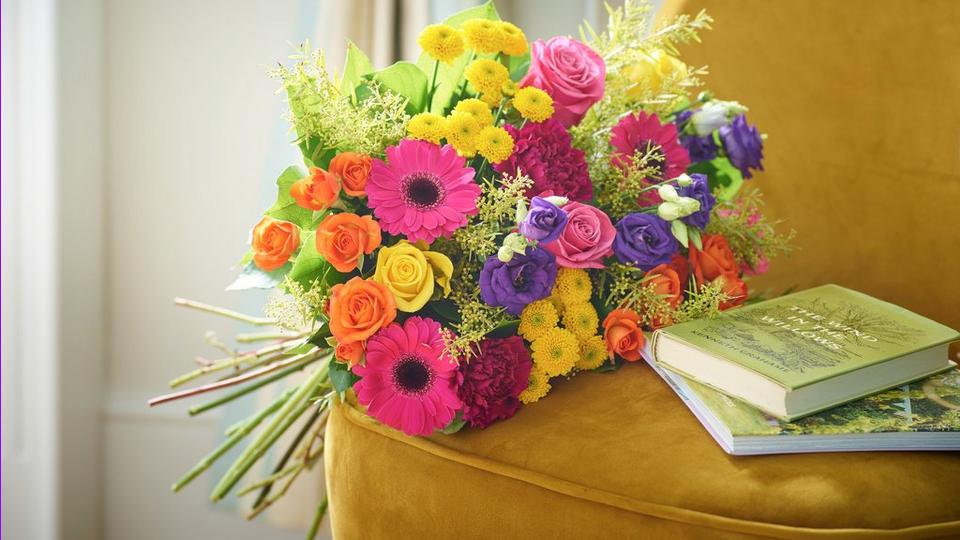Delphiniums: Your Ultimate Flower Guide

A country garden favourite, the stunning delphinium is the quintessentially British summer flower. Strong and tall yet pretty and delicate these beautiful flowers make a wonderful display for the home.
About Delphiniums
The name of this flower derives from the Greek for ‘dolphin’ (delphis) as its buds appear like a dolphin’s snout. The flower earned its more common names Larkspur & Lark’s Heel because of how its spurs resemble the foot of a lark. In terms of history, the delphinium has an interesting one, shrouded in myth and legend.
The ancient Greeks believed that the flower had magical properties and in Transylvania delphiniums were used to ward off witches from stables. In Medieval England the root of the flower was also used to make love potions - something which we don’t recommend as the plant is poisonous!
Facts and origins
Scientific name: Delphinium
Common name: Lark’s claw or Lark’s heel
Family: Ranunculacae
Availability: April-November, peaks June-October
Vase life: Approx. 7 days Colour range: All shades of blue plus purple, lilac, pink and white
The Meaning of Delphinium
The meaning of delphiniums is generally accepted as ‘big hearted’. Like many flowers, different colours of delphiniums often carry their own significance.
Blue, the most common colour, signifies dignity and grace while white and pink represent new life and the power of youth.
Did you know?
- Delphiniums are the birth flower for July
- Delphiniums come from the buttercup family
- Delphiniums were traditionally used to make blue dye and ink
- The ancient Greeks believed that delphiniums had magical properties
Care tips
- Cut 2-3cm from the bottom of the stem at an angle and remove any excess foliage that may sit below the waterline when your flowers are placed in a vase
- Fill a clean vase two thirds full with tap water and add flower food
- Display in a cool position, out of direct heat and away from ripening fruit and vegetables which produce ethylene gas and could expedite the rate of deterioration.
- Re-cut the stems every two days and change the water completely.
- Delphiniums love to drink so make sure you keep the water level topped up at all times.
Note: all parts of the delphinium are poisonous, so handle with care and always wash hands after contact with them.

%20(1).jpg?$poi-square$&fmt=auto&qlt=default&fmt.jp2.qlt=60&bg=%23FECCA7&w=960&aspect=16%3A9)

